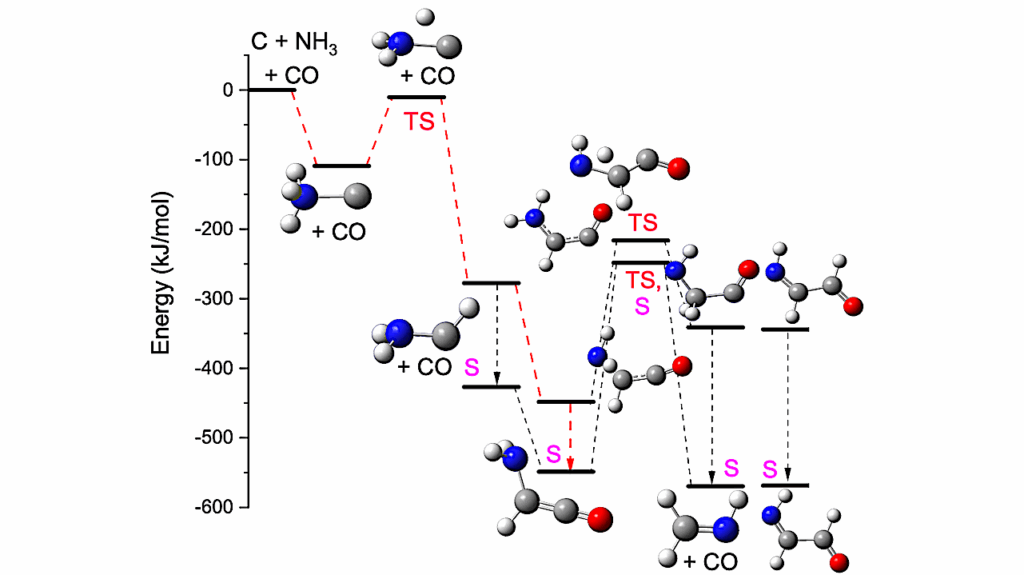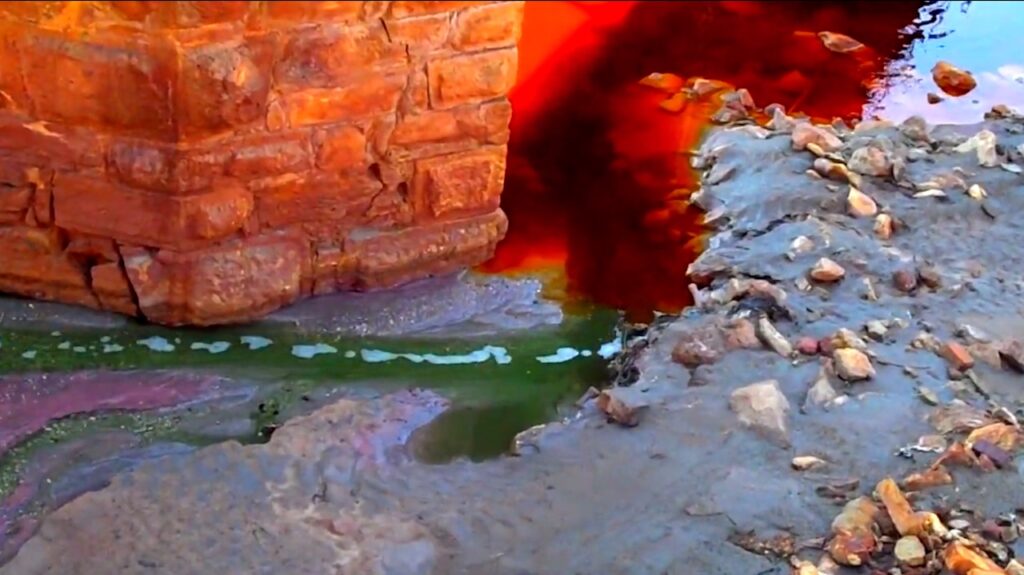New Insight Into Prebiotic Chemistry's 'Water Problem'

Inspired by previous work on chemistry’s ‘water problem’ and ‘asphalt problem,’ a team of researchers has provided new insight into the conditions in which nucleosides combine with phosphate to form nucleoside phosphates, a key set of molecules found in RNA.
Chemistry’s ‘water problem’ refers to the fact that nucleoside phosphates do not form in water because hydrolysis is a more thermodynamically stable reaction. Decades ago, scientists addressed this problem by using formamide as a solvent instead of water.
The ‘asphalt problem’ refers to the degradation of carbohydrates. Recently, researchers supported by the NASA Astrobiology Program showed that borate could be used to stabilize carbohydrates against this process.
By adding borate to formamide, the team has now found that borate can also help a nucleoside (adenosine) combine with phosphate, producing the nucleoside phosphate adenosine-5′-phosphate.
RNA is a molecule that can store a part of the genetic information in cells and can also act like enzymes to increase the rates of chemical reactions important for life. Thus, RNA-based life has been proposed as the ancestral system of modern DNA-protein based life. Studying how RNA might have formed from precursor molecules, and the conditions in which RNA could have formed on the early Earth, is essential in understanding the origin and evolution of life on our planet.
The work was supported in part by the Exobiology and Evolutionary Biology element of the NASA Astrobiology Program. The study, “Abiotic Regioselective Phosphorylation of Adenosine with Borate in Formamide,” was published in the journal Astrobiology.
Source: Abiotic Regioselective Phosphorylation of Adenosine with Borate in Formamide, Astrobiology








